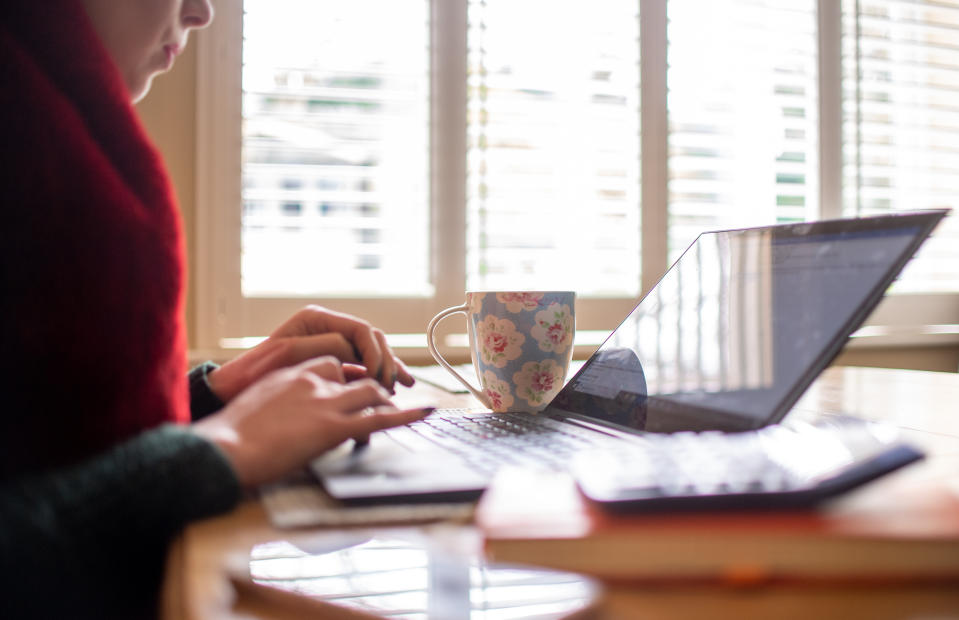How to stop being so distracted when working from home

Working from home during the pandemic is proving to be a serious challenge for many people. With millions of office workers now working remotely for the first time, it has been a struggle to manage work with all the distractions of home, such as childcare, household chores, pets and Netflix.
According to a survey of 1,000 US employees taken by Glassdoor in March, 32% of employees said watching TV is a top distraction when working remotely, followed by 27% who named childcare as the biggest distraction. A separate poll of 2,000 UK workers found more than 85% were more likely to engage in non-work related activities while remote working, including housework, cooking and online shopping.
Of course, the time saved by not commuting, heading out for lunch or chatting to colleagues tends to mean remote workers have more time to spend on non-work activities. But it can also be easy to procrastinate with work when you know there’s a pile of laundry or washing up to be done. So why is it hard to focus when you’re working from home?
Flexible working expert Anna Meller, author of #Upcycle Your Job: The smart way to balance family life and career, says the lack of boundaries when working remotely can be a significant factor.
“One of the key concepts in work-life balance literature is that of boundaries. In this case we‘re talking about setting boundaries between our home and work life,” Meller says.
“These have been increasingly blurred by technology and having to work from home with family around is simply adding to the problem. According to academic Ellen Ernst Kossek learning to manage this ‘boundarylessness’ is an essential skill for the 21st century.”
Distractions are often the result of our inability to set or maintain boundaries, Meller adds, although it can be out of our control. We can also become distracted when we think we are multitasking, something multiple studies have shown we aren’t actually adept at doing.
READ MORE: Can an employee's actions on Zoom get them fired?
Set clear boundaries and avoid chores
“To reduce distractions, set clear boundaries on when you will work and when you will focus on other aspects of life,” Meller says. “Manage your technology so it doesn’t interfere with your boundaries. For example, keep your work mobile and apps separate from your leisure mobile. Agree with people around you when you are available for work and when you are being present for family and friends – and try to stick to it.”
Although many people think they’re multitasking effectively by sorting the laundry while on a conference call or working in front of the TV, research suggests we aren’t being as productive as we believe we are.
A study by the University of Southern California shows that multitasking actually leads to a decrease in productivity because it takes your brain extra time to switch mental gears between tasks. As a result, we’re more likely to make mistakes and retain less information than if we just focused on work alone.
Watch: How To Create The Perfect CV
Set aside time to check your emails and social media
Many of us are guilty of picking up our phones and scrolling through Instagram, Facebook (FB) or Twitter (TWTR) without realising what we are doing. A 2018 survey by Ofcom found 40% of adults first look at their phone within five minutes of waking up, which increases to 65% of those aged under 35. Similarly, 37% of adults check their phones five minutes before they go to sleep, again rising to 60% of under-35s.
Emails can be another major distraction. Instead of checking your inbox every five minutes, set aside time every couple of hours to reply to messages.
Set schedules for children
Schools are open during the current second lockdown, but parents may find themselves looking after their children while working remotely if they become ill with Covid, or if they have to isolate.
READ MORE: How to work from home when you have children
Sticking to a routine can help maintain a sense of normality when everything is different, such as getting up at the same time and keeping to regular mealtimes. Kids may find it difficult to adjust from the normality of the school day, and the lack of peer support to keep them engaged and motivated, but a schedule can help.
Setting schooling or homework hours can give parents some uninterrupted time to focus on work without any distraction. For younger children who don’t have school work, it can help to plan ahead and set aside specific hours for naps, meals and TV. And remember, we’re living through challenging times at the moment - so try not to be too hard on yourself if you’re finding things difficult.

 Yahoo News
Yahoo News 